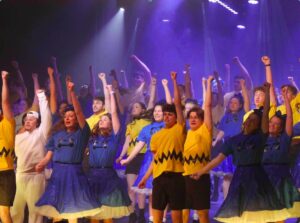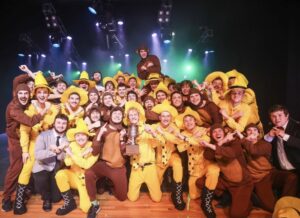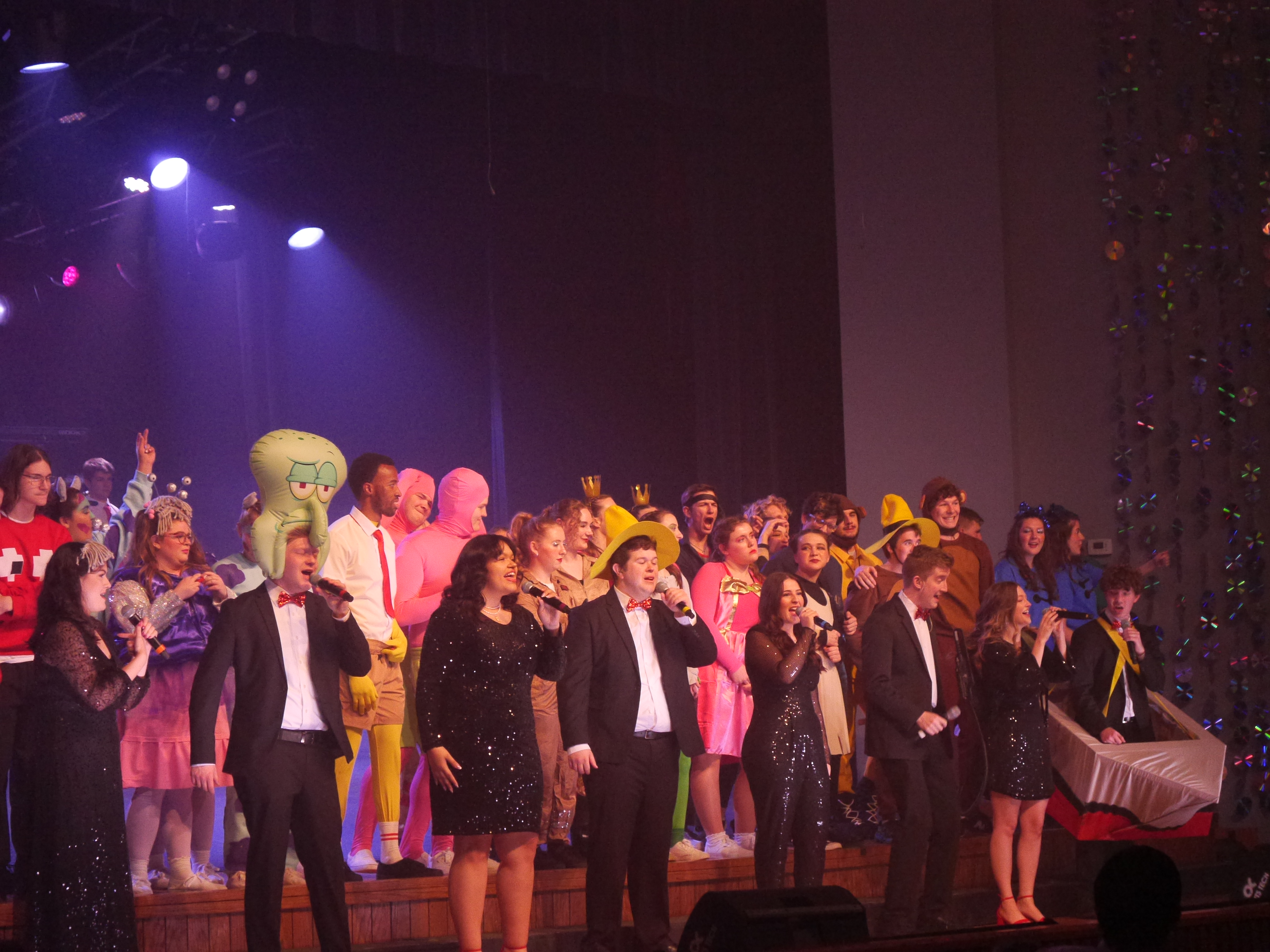Written by: Ryan Major
At Oklahoma Christian University, “Faith[fully]” is our slogan. We attend chapel every weekday and are greeted by Bible verses hung from the ceiling in our academic departments. Christ is professed to be the foundation of all we do. One would expect Spring Sing, the largest, most publicized and most time-consuming event of the school year, to reflect this mission. However, upon attending a performance, one notices a distinct lack of religious themes. Except for a short mention of God in an opening or closing prayer, there is no deference given to the Almighty.
There are rumors that the reason for this omission is an alleged bylaw that prohibits the use of religious songs and humorous religious references in Spring Sing shows. If this rule exists, its intent of it is to prevent mocking religion and offending those in the clubs and the audience who might disagree with the religious ideas presented. However, due to the fact that almost the entirety of Spring Sing is humorous, a side effect is the complete exclusion of God from Spring Sing.
While this seems reasonable at first glance, the question is whether such a rule can be justified. How can an overtly Christian school exclude the very mention of their God in what is the most popular event of the year?
This dilemma brings to mind Malachi 1:6, in which the prophet conveys the Lord’s distaste for the offerings of the priests: “A son honors his father, and a servant his master. If then I am a father, where is my honor? And if I am a master, where is my fear?”
The priests of Israel had been offering poor sacrifices to the Lord and reserving the best animals for themselves. Could this be true of Spring Sing here at Oklahoma Christian? Could we be offering less popular events to the Lord, such as daily chapel and an occasional lecture, while keeping the totality of our favorite event, Spring Sing, to ourselves? Why are we forbidden from even referencing God at the one event that could bring him the most glory?
The two concerns with lifting such a ban that seem most legitimate are that a club might disrespect a religion or that someone might find a religious reference offensive. Concerning the first, I believe the approval process already in place is sufficient for preventing outright mockery of a religion. Removal of derisive religious references would merely be an additional step in the approval process.
The second concern, however, is more difficult to address. No doubt, any religious reference will carry implications that might offend one person or another. However, we must realize that no matter what we do, someone will be displeased. Ultimately, what matters is not satisfying men, but serving God. Galatians 1:10 reads, “For am I now seeking the approval of man, or of God? Or am I trying to please man? If I were still trying to please man, I would not be a servant of Christ.”
We too must ask this question. Is our goal to appease men or to please God? If our concern is the former, then we know our priorities are askew.
Please do not misunderstand my point. I do not wish Spring Sing to be a competition in which the clubs try to out-Christian one another. This is a perversion of true worship. Rather, I merely think that a club, if its members choose to do so, should be permitted to use religious themes in its performance. For instance, if a club competing in last year’s Spring Sing (League of Legends) had wished their theme to be Samson (a legendary Biblical figure in my own opinion), why should they not be permitted to do so? Such a performance, if handled correctly, could be both entertaining and spiritually enriching. If such a ban on the religious references in Spring Sing exists, I would therefore call for a strong reevaluation.
Ryan Major is a senior at Oklahoma Christian University

















Be First to Comment